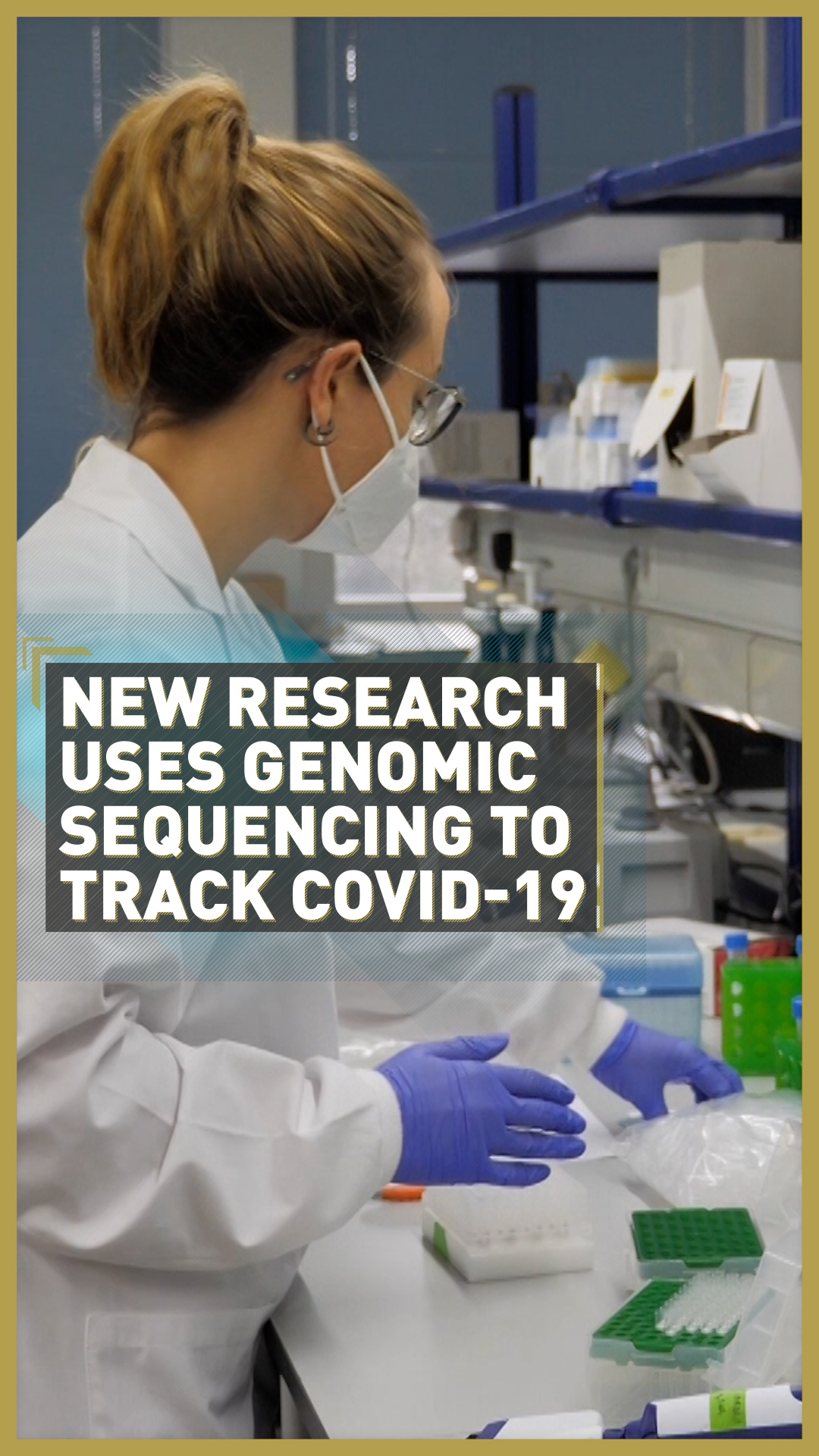A research team in Valencia is pioneering the use of genome sequencing to help track the spread of COVID-19 in Spain.
New research by the Institute of BioMedicine in Valencia has used genome sequencing to find out exactly how the virus spreads.
Inaki Comas and his wife Llucia Martinez, a sequencing manager at the FISA bio laboratory, are part of a team at the forefront of the global research.
They use machines that can split the matter into its elements, which can then be fed into their database to look for distinctive patterns.
"The knowledge of virus sequencing is really important to see spread across Europe, but is even more important when it comes to finding new treatments or vaccines, we can assess it practically in real time, because we are sequencing in real time," Martinez told CGTN Europe.

Real-time research
Comas, who works at Spain's Research Council, said: "Now we have a tool that was not present even five years ago, that we can now use to fight epidemics.
"You have this real-time fighting. If you think in the history of how we fight diseases – in the 19th century a huge development was vaccines, in the 20th century we had antivirals, and in the 21st century we will get genomic epidemiology."

Llucia Martinez said the research would help with future vaccines. /CGTN
Super-spreader events
Their study examined thousands of patients, and saw more than 500 "multiple-entries" that brought the virus into Spain in February.
Events such as Milan Fashion week and a contemporary Art Convention in Madrid were studied.
The team discovered there was no real "ground zero" for the pandemic in Spain.
After the summer, the spread of two variants from Spain were responsible for huge infection rates across Europe, in some cases up to 80 percent of all COVID-19 patients.
The ability to track this mutation so accurately is the result of genome-sequencing technology.
Real-time sequencing does require huge investment – but it also allows the scientists to keep pace with the rapidly changing mutations in pathogens such as COVID-19. A powerful weapon against a formidable enemy.








 User Center
User Center My Training Class
My Training Class Feedback
Feedback













Comments
Something to say?
Log in or Sign up for free